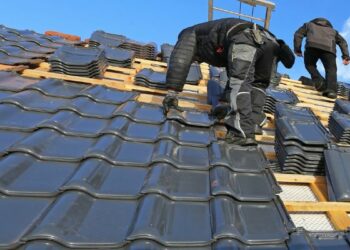While you won’t go wrong if you choose any ordinary and plain sink that you can find in your local home-improvement store, not all sinks are created equal. Some are better than the others in quality, while some last longer and have other properties. Many people choose stainless steel sinks, while others prefer granite composite. Our top granite composite sinks review will help you decide between the two.
When choosing a sink for your home, the first thing you should pay attention to is the sink’s composition. It is what affects the sink’s ability to resist heat, stains, and regular wear-and-tear. Then, there’s hardness also.
If you accidentally drop glassware or fragile dishes in the sink, it may shatter and produce noise, depending on the sink’s hardness. Since both stainless steel and granite composite sinks are affordable and durable, let’s compare the two to help you make an informed decision on which one to buy for your home.
Composite Basics
As the name suggests, a composite sink is a product of a combination of different materials. Typically, composite sinks are made of materials that are themselves a combination of pulverized mineral content and acrylic resins – mostly granite, quartz, or the combination of two.
Many people make the same mistake in calling composite sinks “granite sinks,” but this is wrong simply because composite sinks aren’t made from solid quarried granite. Instead, the majority of composite sinks are made of a composite of quartz powder and granite and acrylic resins molded into a sink shape.
In some cases, composite sinks can also be integrated with the countertop. This particular type of composite sink may be labeled as composite quartz, composite granite, or granite sinks. It all depends on the nature of the composite material and the manufacturer.
Composite Sinks – Pros and Cons
If you have a kitchen with a modern color scheme, composite sinks are the best home improvement and accessory choice. These sinks are essentially a blend of different composite materials, making it much easier to find a matching option that suits your home.
This is why the majority of people choose a synthetic solid-surface countertop. With that in mind, let’s see some of the pros of buying a composite sink:
- High level of hardness – composite sinks are very hard, which means they are also quite resilient and durable. They are unlikely to scratch, dent, or chip.
- Heat-resistance – composite sinks are incredibly heat-resistant.
- Cost-effective – granite composite sinks are more affordable than real granite sinks.
Let’s take a look at some of the cons too:
- Still cost more than the average stainless steel – composite sinks, whether granite or not, are still more expensive than the average stainless steel sinks. However, the good thing is that the price isn’t extremely different, in some cases.
- Limited heat resistance – while granite composite sinks are heat-resistant, they aren’t heat-proof. Some granite composite sinks are known to warp from extreme heat. It would be best to read the specifications before putting your granite composite sink to the heat test.
- Heavyweight – compared to their stainless steel counterparts, composite sinks are heavy and may require additional support when installed.
- Maintenance – while composite sinks are easy to clean, granite composite sinks require a certain degree of maintenance, although nothing too complicated. The trick is to use only the cleaning chemicals that the manufacturer approves.
If you choose to go with a granite composite solution, you should know that real granite and composite granite don’t look the same. If you have a granite countertop and need a sink to match it, a composite granite sink may not be the best solution.
Stainless Steel Sinks – Pros and Cons
As one of the most common sinks in most homes, a stainless steel sink is an excellent sink solution for all those who prefer easy maintenance house accessories and are short on budget. While these sinks aren’t as sophisticated or attractive as their granite composite rivals, they do come with a few advantages on their own.
They are the most suitable solution for a typical kitchen, relatively affordable, require low maintenance, and are quite heat-proof. However, stainless steel has one fantastic property that granite and composite sinks don’t have – it can heal itself if its surface gets damaged due to a scratch or something else.
Here are some of the best pros:
- Stainless steel sinks are more affordable than granite composite;
- These sinks come with a higher level of heat-resistance, while some are even heat-proof;
- Stainless steel is thinner and softer when compared to granite and composite materials;
- Stainless steel sinks are lightweight, easy to install and transport;
- It’s easier to find a stainless steel sink according to your home improvement preferences than a granite composite.
Now, not everything is perfect in the land of stainless steel. Let’s take a look at some of the cons:
- Only one color pattern to choose from;
- The thinness of steel makes it less resilient to regular wear and tear;
- Cheaper sinks are known to be dented from regular use;
- Easy to damage due to rust;
- Easy to stain and spot.
Conclusion
As you can see, both granite composite and stainless steel have their advantages and disadvantages. It all comes down to your home improvement needs. If you have a granite countertop, going with a granite composite won’t turn out as planned. On the other hand, if you’re short on budget, stainless steel may be the best solution. Think twice before you buy to make sure you make a wise decision.
Read also : Modern Bathroom Vanities












